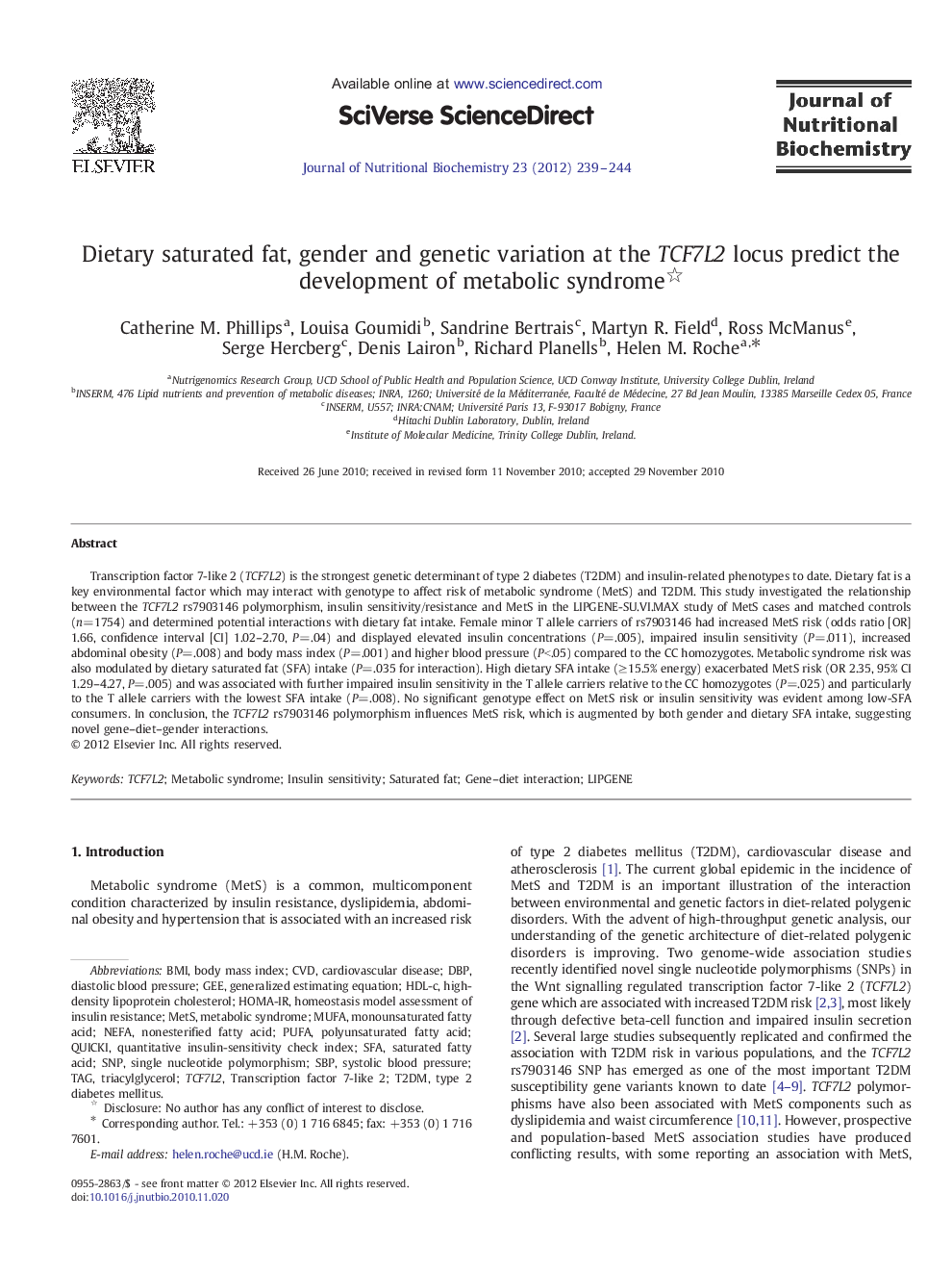| Article ID | Journal | Published Year | Pages | File Type |
|---|---|---|---|---|
| 1989907 | The Journal of Nutritional Biochemistry | 2012 | 6 Pages |
Transcription factor 7-like 2 (TCF7L2) is the strongest genetic determinant of type 2 diabetes (T2DM) and insulin-related phenotypes to date. Dietary fat is a key environmental factor which may interact with genotype to affect risk of metabolic syndrome (MetS) and T2DM. This study investigated the relationship between the TCF7L2 rs7903146 polymorphism, insulin sensitivity/resistance and MetS in the LIPGENE-SU.VI.MAX study of MetS cases and matched controls (n=1754) and determined potential interactions with dietary fat intake. Female minor T allele carriers of rs7903146 had increased MetS risk (odds ratio [OR] 1.66, confidence interval [CI] 1.02–2.70, P=.04) and displayed elevated insulin concentrations (P=.005), impaired insulin sensitivity (P=.011), increased abdominal obesity (P=.008) and body mass index (P=.001) and higher blood pressure (P<.05) compared to the CC homozygotes. Metabolic syndrome risk was also modulated by dietary saturated fat (SFA) intake (P=.035 for interaction). High dietary SFA intake (≥15.5% energy) exacerbated MetS risk (OR 2.35, 95% CI 1.29–4.27, P=.005) and was associated with further impaired insulin sensitivity in the T allele carriers relative to the CC homozygotes (P=.025) and particularly to the T allele carriers with the lowest SFA intake (P=.008). No significant genotype effect on MetS risk or insulin sensitivity was evident among low-SFA consumers. In conclusion, the TCF7L2 rs7903146 polymorphism influences MetS risk, which is augmented by both gender and dietary SFA intake, suggesting novel gene–diet–gender interactions.
